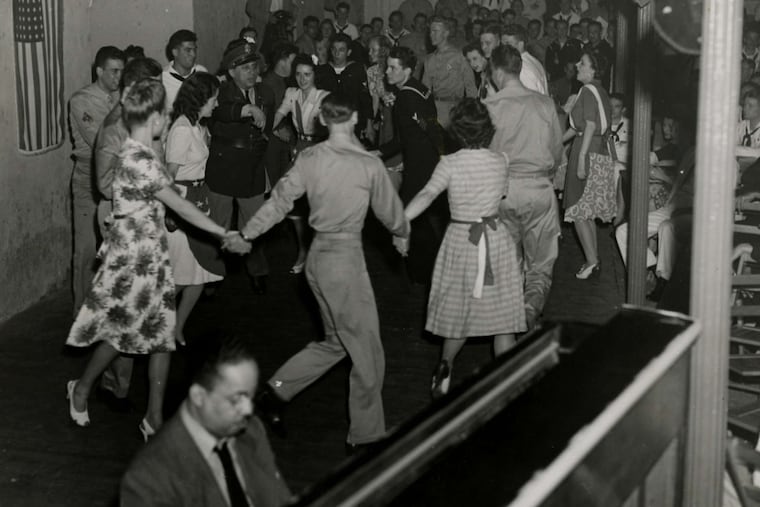City's WWII club: Imperfect escape
As the nation prepares to celebrate Veterans Day on Nov. 11, consider the story of the Philadelphia United Services Organization (USO) and its flagship club, the Stage Door Canteen.

As the nation prepares to celebrate Veterans Day on Nov. 11, consider the story of the Philadelphia United Services Organization (USO) and its flagship club, the Stage Door Canteen.
Formed in February 1941, the USO began as a cooperative effort between the Roosevelt administration and six national religious and relief organizations. Part of their mandate included the creation of hospitality centers and clubs where service members could seek lodging, enjoy free entertainment, and secure other social services. A committee to establish a Philadelphia USO office followed soon thereafter.
Aside from raising money, the Philadelphia USO and the American Theatre Wing - the organization that hosts Broadway's Tony Awards - established the Stage Door Canteen in the basement bar of the Academy of Music.
Dancers, opera singers, comedians, ventriloquists, and acrobats entertained more than a million uniformed servicemen during the nightclub's three-year existence. Frank Sinatra and Duke Ellington competed for stage time with Abbott and Costello and Ethel Merman, while Oscar the Performing Seal and exotic dancers strutted their stuff. Soldiers packed the club during each of the three shows hosted nightly, seven days a week.
But it was not all bonhomie.
During the war, American armed services followed an official policy of segregation. While USO clubs were technically open to all servicemen, the experience of minorities at the Stage Door Canteen mirrored the unequal treatment in uniform.
After accepting an invitation from a white hostess to dance, an African American soldier was informed by an Army major that "the Stage Door was no place for a colored soldier," and told to leave.
The soldier's reply, "that he had been fighting overseas for three years and thought he was fighting for democracy," made front-page news in the Philadelphia Tribune and other black newspapers in the city. This led to more African Americans challenging the USO's unofficial policy of segregation. The club, however, simply hired more black hostesses, ever-worried about the threat of mixed couples on the dance floor.
Uniformed women - serving in such outfits as the Women Air Force Service Pilots and Women's Army Corps - were barred outright from entering the Canteen. The reason? In a club exclusively for uniformed male soldiers, officials claimed servicewomen's uniforms "would detract from the party atmosphere so desirable at the Canteen."
Treatment of hostesses at the Canteen also demonstrated officials' attempts to reinforce traditional gender identities.
"A junior hostess had first 'to win the approval from the discerning eye of a committee of personnel chairmen' who reportedly had lived in Philadelphia long enough to know a pretty girl when they saw one," recounted historian Maryann Lovelace.
"We want them pretty. We want them young and unmarried. We want to be sure they dance well," a Philly USO official remarked in the Evening Bulletin.
Hostesses were under panoptic surveillance by their shift captain, who recorded infringements in shorthand: "S for wore sweater; B for bad attitude; P for forgot pass; M for left with service man."
While the Canteen's story does not neatly conform to popular myths surrounding the Second World War, it's a reminder that, for the duration, pressing domestic issues of gender, sexuality, and labor were quelled, not resolved.